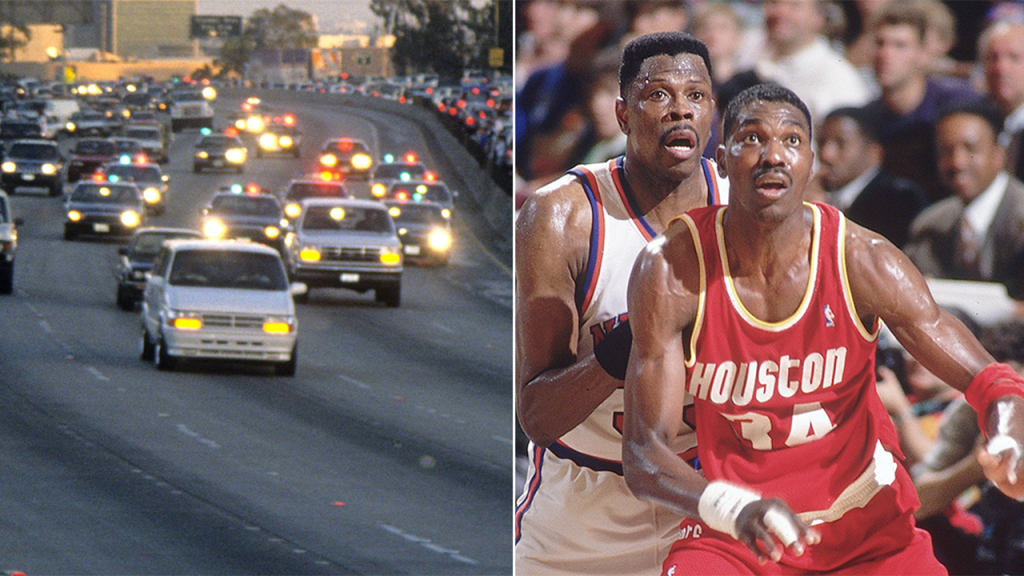O.J. Simpson, a Pro Football Hall of Famer, died at the age of 76 after battling cancer. He was a well-known figure in America, starting with his Heisman Trophy win in 1968 and having a successful NFL career. However, he became embroiled in controversy when he was accused of murdering his ex-wife Nicole Brown Simpson and her friend Ronald Goldman in 1994. The infamous white Ford Bronco chase on June 17, 1994, captivated nearly 100 million viewers and overshadowed major sporting events happening that day, including the U.S. Open, a New York Rangers parade, an NBA Finals game, and the opening of the 1994 World Cup.
The day of the Bronco chase, Simpson did not surrender to police as expected, causing chaos and leading to him being deemed a “fugitive of justice.” The chase was aired on television, interrupting the NBA Finals game between the New York Knicks and the Houston Rockets. Despite the Knicks’ victory, some fans missed key moments due to the Bronco chase taking precedence on television. Simpson, who had a gun to his head during the chase, eventually surrendered at his home. The events of that day are still remembered as one of the biggest trials ever, with Simpson being found not guilty of the murders but later found financially liable in a civil court case.
The day’s events are the subject of an ESPN “30 for 30” documentary titled “June 17, 1994,” which features no narration or interviews, just clips from the day’s events. Director Brett Morgen described the day as containing every emotion related to sports, highlighting the impact of the Bronco chase on American culture. The documentary captures the atmosphere surrounding Simpson’s trial and the simultaneous major sporting events happening, showcasing the magnitude of the events unfolding on June 17, 1994.
Despite Simpson’s successful football career and Hall of Fame induction, his legacy is tainted by the events surrounding the murder trial and the subsequent civil court findings. The Bronco chase remains a significant moment in American pop culture, reflecting the public’s fascination with Simpson’s actions and the media coverage of the trial. While Simpson was found not guilty in criminal court, the images and videos of the bizarre chase and subsequent trial remain etched in the memories of those who witnessed it live or followed the case through various media outlets.
The impact of the events of June 17, 1994, extends beyond Simpson’s trial to the cultural and sporting context of the time. The day showcased a convergence of major sports events and a high-profile criminal case, highlighting the intersection of sports, media, and celebrity culture. The significance of that day in American history is captured in the ESPN documentary, which provides a glimpse into the emotions and reactions of the public during a pivotal moment in the country’s collective consciousness. Simpson’s legacy is marked by both his accomplishments on the football field and the controversies that defined his later years, leaving a complex and controversial legacy.


